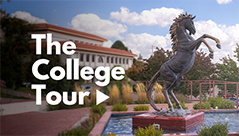We have been
around since 1893.
Our institution has a long history of academic excellence and a commitment to online learning.
Fully accredited with online course options
Earn a degree through our online programs.
Math majors at WNMU
have choices
You can choose one of two distinct concentrations to frame your studies: Computational and Applied Mathematics, or Mathematics Education (Secondary).
 .
. .
.